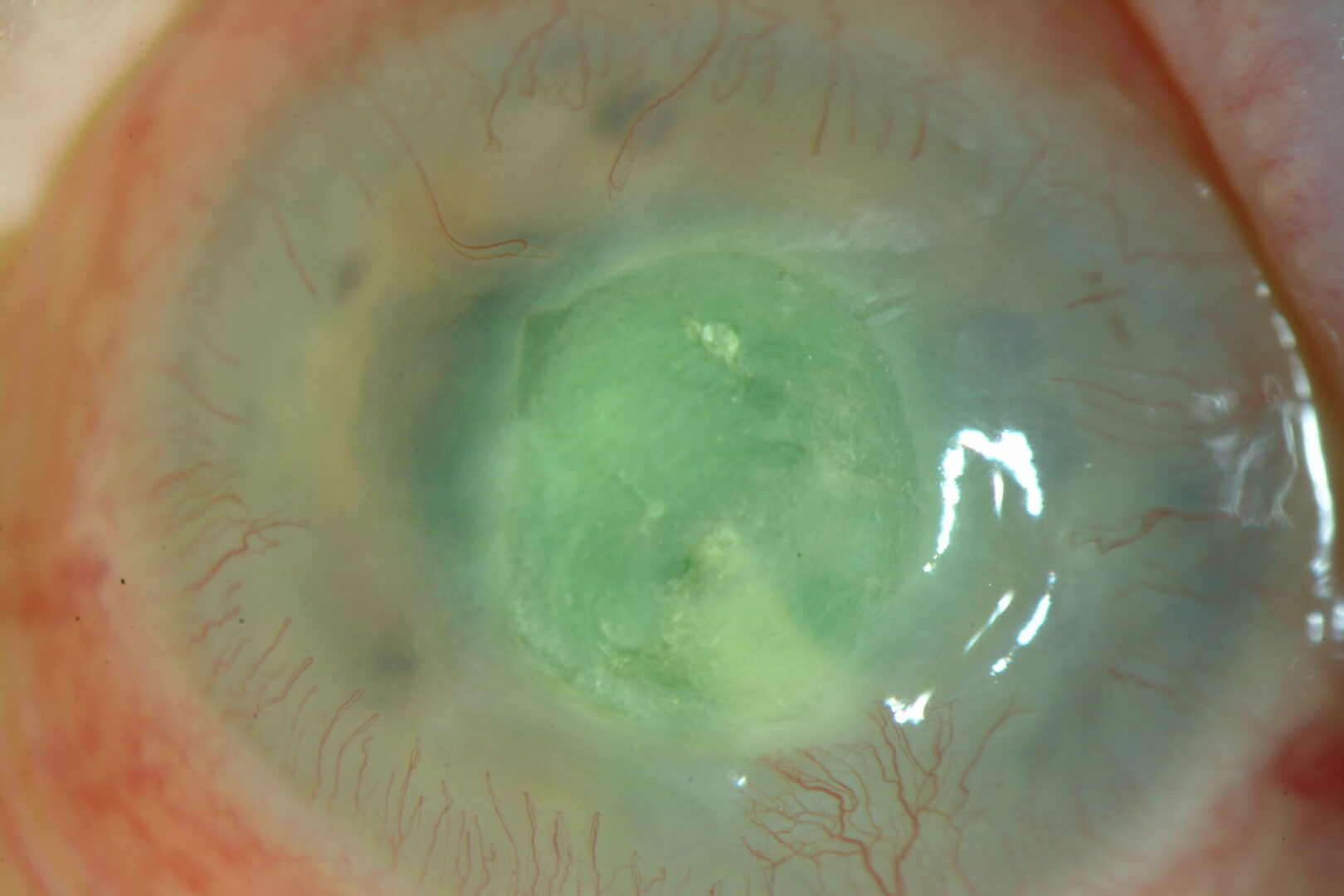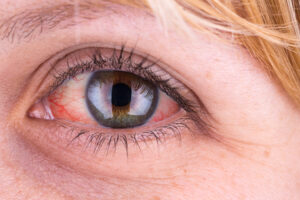Eye diseases
Eye ulcers

They are caused by trauma, infection or dry eyes, among others.
Poor contact lens use and hygiene poses a risk factor.
They can cause serious and permanent damage to the cornea.
What are eye ulcers?
Eye ulcers or corneal ulcers are lesions that affect the cornea (outer, transparent layer of the eye) and usually occur in its most superficial part, known as the corneal epithelium.
We are talking about open wounds that can have an infectious or non-infectious onset and whose severity depends on their cause, depth and location (inside or outside the visual axis).
Treating them properly and early is essential to prevent them from causing permanent and severe damage, hence leaving scars and effects on vision that may require a corneal transplant.






